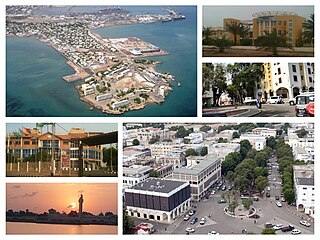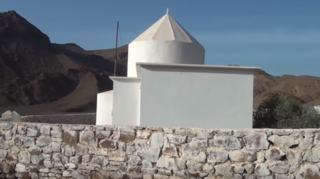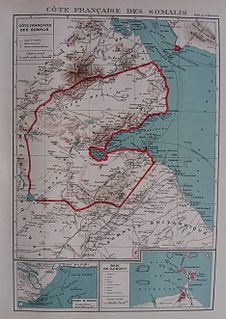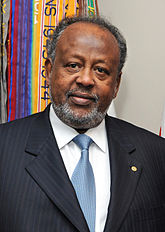This page is based on this
Wikipedia article Text is available under the
CC BY-SA 4.0 license; additional terms may apply.
Images, videos and audio are available under their respective licenses.
Djibouti is a country in the Horn of Africa. It is bordered by Somalia to the southeast, Eritrea and the Red Sea to the north and northeast, Ethiopia to the west and south, and the Gulf of Aden to the east.

Politics of Djibouti takes place in a framework of a presidential representative democratic republic, whereby the executive power is exercised by the President and the Government. Legislative power is vested in both the Government and the National Assembly. The party system and legislature are dominated by the socialist People's Rally for Progress. In April 2010, a new constitutional amendment was approved. The President serves as both the head of state and head of government, and is directly elected for single six-year term. Government is headed by the President, who appoints the Prime Minister and the Council of Ministers on the proposal of the latter. There is also a 65-member chamber of deputies, where representatives are popularly elected for terms of five years. Administratively, the country is divided into five regions and one city, with eleven additional district subdivisions. Djibouti is also part of various international organisations, including the United Nations and Arab League.

The national flag of Djibouti was adopted on 27 June 1977, following the country's independence from France. The light blue represents the sky and the sea, as well as the Issa Somalis, green represents the everlasting green of the earth, as well as the Afar people, white represents the colour of peace and the red star represents the unity and the blood shed by the martyrs of independence. No clans are mentioned in the national anthem.

Djibouti City is the eponymous capital and largest city of Djibouti. It is located in the coastal Djibouti Region on the Gulf of Tadjoura.

The Djibouti national football team, nicknamed the Riverains de la Mer Rouge, is the national football team of Djibouti. It is controlled by the Djiboutian Football Federation, and is a member of the Confederation of African Football (CAF) and the Union of Arab Football Associations (UAFA). Until its 1–0 defeat of Somalia's national squad in the opening stage of the 2010 FIFA World Cup qualification, the Djibouti national football team had never won a full FIFA sanctioned international.

Foreign relations of the Republic of Somaliland are the responsibility of the Ministry of Foreign Affairs. The Republic of Somaliland. The region's self-declared independence remains unrecognised by the international community.

The Issa are a northern Somali clan, a sub-division of the Dir clan family and is one of the largest clan of the Dir with a large and densely populated traditional territory.
This is a list of rulers and office-holders of Djibouti.
Somaliland is an unrecognized de facto state in East Africa. The Holy See, in line with all other UN member states, does not recognize the independence of Somaliland, favouring a peaceful solution of unity for all of Somalia. Very few native Christians exist and, owing to its unrecognized status, few expatriate Christian are in the country either.

Ali Aref Bourhan was a Djiboutian politician.

French Somaliland, with its capital at Djibouti, was the scene of only minor skirmishing during World War II, principally between June and July 1940. After the fall of France the colony was briefly in limbo until a governor loyal to the Vichy government was installed on 25 July. It was the last French possession in Africa to remain loyal to Vichy, surrendering to Free French forces only on 26 December 1942. Pierre Nouailhetas governed the territory through most of the Vichy period. In response to aerial bombardment by the British, he instituted a brutal reign of terror against both Europeans and locals, and was eventually recalled and forced to retire. From September 1940, the colony was under an Allied blockade, and many of its inhabitants fled to neighbouring British Somaliland. After the territory's liberation, it cycled through governors rapidly and recovery from the deprivation of 1940–42 was only beginning when the war ended in 1945.
The following is a timeline of the history of Djibouti City, Djibouti.
















